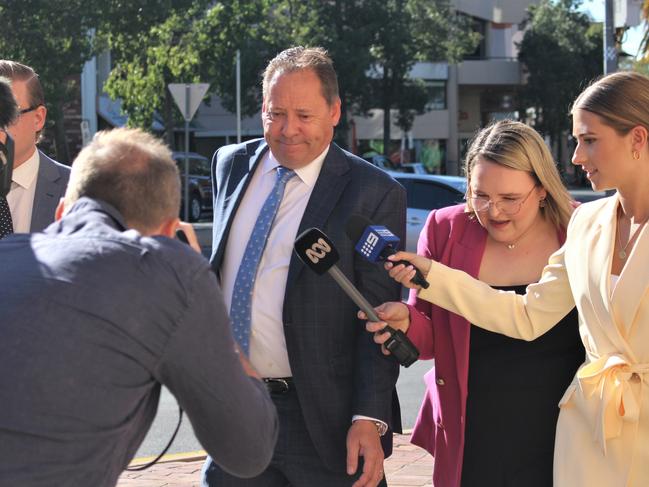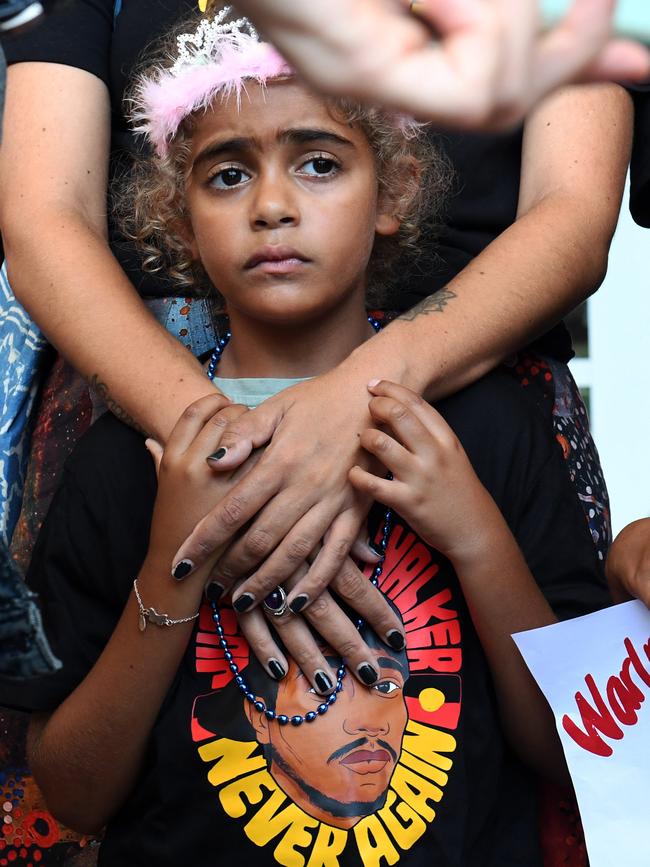Zach Rolfe texts expose Australia’s racist underbelly
Most people would be horrified at the thought that our private text exchanges with friends and colleagues could one day be broadcast to the world.
Opinion
Don't miss out on the headlines from Opinion. Followed categories will be added to My News.
Most people would be horrified at the thought that our private text exchanges with friends and colleagues could one day be broadcast to the world, and for Zach Rolfe, that nightmare came true in the Alice Springs Local Court this week.
We are all, of course, entitled to express what Constable Rolfe’s barrister David Edwardson KC described as occasional “uncharitable remarks or opinions” about our bosses or in-laws that we would prudently never direct to their faces.
But the messages revealed during the inquest into the death of Kumanjayi Walker — fatally shot by Constable Rolfe while on duty in November 2019 — go far beyond that, and are, again in Mr Edwardson’s words, “appalling”, “abhorrent” and “patently racist”.

The vile slurs and disgraceful attitudes expressed in the messages would be sickening enough if attributed to a civilian, but in passing between serving police officers, including at least one of the rank of sergeant, they are profoundly disturbing.
If not for the fatal bungling of Mr Walker’s arrest inside house 511 in Yuendumu almost three years ago, these texts, like those on millions of phones throughout the nation, would have remained private and likely never been exposed to the disinfecting daylight of public scrutiny.
And while nothing can take away the pain of the loss Mr Walker’s family suffered that night, they may take some comfort in the fact that the messages have now emerged, exposing the dark underbelly of racism that still permeates modern Australia and its institutions to the cold hard light of day.

No doubt, many Australians were shocked and appalled by the content of the messages and have rightly condemned them, publicly and privately.
But equally, there are, no doubt, many Australians whose own phones began quietly burning a hole in their pocket as they read and reflected on some of their own attitudes expressed in private that they would be mortified to be associated with publicly.
There is clearly a lesson to be learned from the troubling revelations from this week’s hearings, and it’s not just to adhere to the old adage that you should never say in private what you wouldn’t want to see on page three of tomorrow’s newspaper.
If the public airing of Constable Rolfe and his interlocutors’ dirty laundry is to serve a public good, it will be in prompting all who read the messages to reflect on whether they themselves can honestly say they are truly a part of the modern, enlightened Australia for which we all publicly claim to strive, and not simply a part of the problem.





